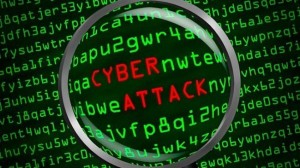 Cyber space has pervaded the social, economic, and political aspects of our lives. The essence of this ubiquitous, fast-growing phenomenon and its genius lies in the universal power of the simple 1s and 0s.
Cyber space has pervaded the social, economic, and political aspects of our lives. The essence of this ubiquitous, fast-growing phenomenon and its genius lies in the universal power of the simple 1s and 0s.
The exponential growth of its penetration has fostered a wild explosion of what is called cyber espionage, or cyber attack. Such operations, like non-cyber espionage, are typically illegal in the victim country while fully supported by the highest level of government in the aggressor country.
This issue gave rise to “cyber defense”. According to the officials, Iran is one of the forerunners to counter cyber attacks. It is among the top 5 countries to detect, and foil cyber espionage.
The Iranian officials also say that over 1000 cyber attacks are staged, on daily basis, against Iran’s vital institutions. Now a question: what has made Iran so powerful in cyber defense? Stuxnet is a computer worm.
It is designed to crawl into the PLCs or Programmable Logic Devices. It spins the centrifuges beyond their breaking points. In 2010, Iran’s Natanz centrifuges were targeted by the Stuxnet.
But, Iran’s experts detected, and deciphered the malware.The failure of the stuxnet coincided with the “retirement” of General Keith Alexander, the director of the US National Security Agency, after eight years being at the helm of the US intelligence Service.
According to the head of Iran’s civil defense, the Iranian nation is now fully aware of the West’s intentions, and the necessity to build a strong defense system in the country. According to the officials, Iran is further consolidating its cyber defense against any incoming attack.
So that a new field has been included in the universities dubbed Cyber Defense. They also say that Iran’s policy is based on defense rather than aggression.
By Press TV
The Iran Project is not responsible for the content of quoted articles.

 QR code
QR code